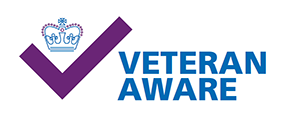Our Services A - Z - Anaesthesia and Pain Management
About the service
The department provides anaesthetic services for elective surgery in: General Surgery, Plastic and Reconstructive Surgery, Burns Surgery, Urology, ENT, Ophthalmology, Orthopaedic Surgery and Gynaecology.
Anaesthetic services include the medical assessment of patients pre-operatively, providing anaesthesia during operations and managing surgical patients during the early post-operative period.
The Department of Anaesthesia also provides emergency anaesthetic cover for these surgical services on a 24-hour basis. There are regular operating lists for emergency general, orthopaedic, plastic and gynaecological surgery.
The department also provides a 24-hour epidural service for analgesia during labour, and a 24-hour anaesthetic service for obstetric emergencies including caesarean sections.
Additional functions of the department include the running of a consultant based Chronic Pain Service, an Acute Pain Service, support for the major trauma team and ad-hoc assistance to the critical care unit when requested.
Whiston Hospital
This site contains a modern central operating suite containing 12 well-equipped theatres, with two recovery areas at level 4. Two additional theatres for obstetrics are located in the central delivery suite at level 2 and one more in the paediatric outpatient department for community dental services at level 2.
St Helens Hospital
The operating department at St Helens Hospital consists of six operating theatre suites for day cases.
- Patient Information
Your anaesthetist will advise you on what anaesthetic techniques will give you the best benefit for the least risk. Making these decisions is difficult, but your anaesthetist will want to help you so that you can make the choices that are right for you.
Please be reassured that your anaesthetist has undergone rigorous training and assessment to ensure that your anaesthetic is as safe as possible.
The Royal College of Anaesthetists has produced a large number of resources for you to view about all aspects of anaesthesia - https://www.rcoa.ac.uk/patient-information
- Before your operation
Before your operation there are a number of things you can do to better prepare yourself for your anaesthetic:
Stop smoking
Smoking can affect your breathing during your anaesthetic. You should stop smoking for as long as possible prior to your operation.
Lose some weight
Being overweight can increase the risks of your anaesthetic. By losing weight you will reduce some of these risks.
Improve your fitness
Your anaesthetic can be a real work out for your body. If you are fit, your body will find it easier to deal with the anaesthetic.
Nil by mouth
You should receive clear instructions from your doctor about how long you should not eat or drink prior to your operation. Please be aware if you do not follow this advice, your operation may be cancelled. It can be dangerous to have any food or drink in your stomach before your operation.
Keep your medical team informed
Inform your anaesthetist if you have any condition or are taking any medication that means you bruise or bleed more easily. Medications such as aspirin, clopidogrel and warfarin can do this.
If you have not received clear instructions about stopping eating or drinking before your operation, or are unsure about anything, please contact your hospital doctor for further advice. https://youtu.be/0NMHMX-nFgY
Pre-assessment clinic
Before your operation we need to make sure that you are fit enough to undergo surgery. We will give you an appointment to come to the pre-operative assessment clinic two to three weeks before your operation. It is important for you to attend this appointment otherwise your operation will most likely be cancelled.
At your appointment, you will see a senior nurse who will ask you a number of questions about your health and lifestyle, and examine you. You will also be weighed, your urine checked, and a pregnancy test may be done. You may undergo routine tests such as a chest x-ray, blood tests and an electro-cardiogram, where small pads are placed on your chest and a tracing of your heart is made.
Some of your medications may need to be stopped before your operation. Please bring any medications that you are taking to your pre-operative assessment clinic. We will then let you know what you need to do. If you are still unsure, please contact the hospital for further advice.
If you feel unwell in the two weeks before your operation please contact your doctor at the hospital. It is important that you are as well as possible before your operation. Depending on the illness and how urgent the surgery is, your operation may need to be postponed until you are better.
- On the day of your operation
Meeting your anaesthetist
You will meet your anaesthetist before your operation. Your anaesthetist will make every effort to meet you on the ward before your surgery, but this is not always possible.
Assessing that you are fit enough
Before your operation, your anaesthetist will ask you questions about your health. These will include questions about how you feel now, questions about any past or current illnesses, if you have any loose or capped teeth, any regular medications and any allergies. Your anaesthetist may also examine your mouth, heart and lungs.
Planning your anaesthetic
Your anaesthetist will discuss with you what anaesthetics are available to you and the advantages and disadvantages of each. Together you will decide on your anaesthetic. The best option for you will depend on your operation, your health, your preferences and your anaesthetist’s opinion.
Before your operation
This can vary, but in general, you will change into a hospital gown and be taken to a room outside the operating theatre, known as the anaesthetic room.
The anaesthetic room
Here you will meet your anaesthetist and theatre staff. They will check your identification bracelet, your name and date of birth, and will ask you about other details in your medical records as a final check before your operation. You will be connected to some monitors that check your breathing, heartbeat and blood pressure. Sticky patches will be placed on your chest, a blood-pressure cuff will be placed on your arm and a clip will be placed on your finger. The monitors will bleep in time with your heartbeat and a cuff will inflate on your arm to take your blood pressure regularly. Depending on your operation more monitoring equipment may be attached.
Your anaesthetic
A small needle may be placed in a vein in your arm or hand to help give you your anaesthetic and you may be given an oxygen mask to breathe through. Once you are ready, your anaesthetist will give your anaesthetic and you will be taken into the operating theatre.
- During your operation
Your anaesthetist will remain with you throughout your operation to ensure that you are kept safe and comfortable.
- After your operation
Your anaesthetist will take you to a recovery room. Here a team of recovery nurses will look after you until you are well enough to be taken to a ward.
Side effects and complications
Please be aware that any anaesthetic can have side effects and complications, but with modern techniques and drugs these are very rare. This is one of the many reasons why a large number of procedures can be done as day cases.
Rare complications to all types of anaesthetic include eye damage, serious allergy to drugs, nerve damage, equipment failure and death. There are probably about five deaths for every million anaesthetics in the UK.
General anaesthetic
Side effects include feeling sick and vomiting, sore throat, dizziness, headache, itching, pain during the injection of drugs, and confusion.
Uncommon side effects and complications include chest infections, bladder problems, damage to teeth, lips or tongue and awareness (becoming conscious during your operation).
Regional anaesthetic
Commonly occurring side effects include pain during the injection of drugs, headache, dizziness, bruising and soreness, and aches and pains.
Uncommon side effects and complications include bladder problems and slow breathing. Please ask your anaesthetist about potential side effects and complications related to your anaesthetic.
Further information and useful contacts
If you want to know more about a particular drug being used for your anaesthetic, then please ask a member of staff. We can discuss any concerns that you may have, and show you any relevant drug information leaflets that have been produced by the manufacturers.
You can also download publications from The Royal College of Anesthetists’ website.
- What is an Anaesthetic?
The word ‘anaesthesia’ means loss of sensation. An anaesthetic is a treatment that prevents you from feeling pain. Anaesthetics work by blocking the signals that pass along your nerves to your brain. Not all anaesthesia makes you unconscious.
There are three types of anaesthetic, these are:
Local anaesthetic
A local anaesthetic numbs a small part of your body immediately surrounding the site of your operation. This is achieved by injecting a drug directly into the surrounding skin. These anaesthetics are often used while you are awake. For example, local anaesthetics are used to numb your skin before you have a cut stitched. The local anaesthetic will gradually wear off after your operation.
Regional anaesthetic
A regional anaesthetic numbs the part of your body, which is being operated on – for example, your arm. This is achieved by injecting a drug around the larger nerves in that body part or region. These anaesthetics are often used while you are awake. The most common regional anaesthetics are spinal and epidural anaesthetics, which are used for operations in the lower half of your body. The regional anaesthetic will gradually wear off after your operation. The type and place of your local or regional anaesthetic injection will depend on the operation you are having.
General anaesthetic
A general anaesthetic makes you unconscious and unaware, more commonly known as ‘sending you off to sleep’. This is achieved by injecting anaesthetic drugs into a vein in your arm or hand, by you breathing in anaesthetic gases or a combination of both. Your anaesthetist will let you know before he/she administers your general anaesthetic. Once started, you will quickly become light headed and then unconscious. Once you are unconscious, your anaesthetist will continue to administer anaesthetic drugs or gases so that you remain asleep and will carefully monitor you throughout the procedure. Once your operation is over, your general anaesthetic will be stopped and you will quickly regain consciousness.
Your anaesthetic
Each type of anaesthetic has its own advantages and disadvantages. Often combinations of local, regional and general anaesthetics are used to tailor your anaesthetic to your needs. Your anaesthetist will discuss with you which type and combinations of anaesthetic are best for you.
- The role of your anaesthetist
Your anaesthetist is a doctor with specialist training in the use of anaesthetics, pain management and the care of patients.
Your anaesthetist is responsible for assessing that you are fit enough to be given an anaesthetic, planning which type of anaesthetic is best for you, giving you your anaesthetic, ensuring that you are safe throughout your operation and looking after you whilst you recover from your anaesthetic.
Along with your surgeon, your anaesthetist works closely with other hospital staff to look after you. These include the operating department staff who prepare and maintain equipment and assist in the operating theatre, and the recovery room staff who will care for you after your operation until you are ready to go back to the ward.
- About the Team
Directorate Manager: Anaesthesia, Theatres and Decontamination
John Clayton
Clinical Director
Dr. Olaposi Simeon Kehinde
Deputy Clinical Director
Dr. Sandra Kay Fisher
Dr Tushar Arun DixitConsultants
Consultant Profiles
Dr. Akshaya Kumar Saggar
Dr. Elizabeth Victoria Kingston
Dr. Permendra Singh
Dr. Stephen Raftery
Dr. Tushar Arun Dixit
Dr. Vicky Lester
Dr. Shyahani de Silva
Dr Mahmoud Ali
Dr Nina JainDr. Olaposi Simeon Kehinde (Clinical Director and Pain Management)
Dr J W Crooke
Dr C Esanu
Dr C Goddard (Airway Lead and Associate Medical Director for Patient Safety)
Dr J Haines (Maternity/Obstetrics Lead)
Dr J Hammond (Organ Donation Lead)
Dr A Holden (FICM Lead and Director of Medical Education)
Dr M Junaidu (ACSA Lead)
Dr Suchinderjit Singh (Paediatrics Lead)
Dr M Vangikar (ITU Lead)
Dr I Wallbank
Dr Peter Gledhill (College Tutor and Deputy Clinical Director)
Dr Emilia Ardelean (Audit Lead)
Dr Konstantin Anatolevich Levshankov
Dr Desmond Paul Lindsay Atherton
Dr Yick- Meng Andrew Wong
Dr Scott Alexander David Miller
Dr Helen Alexandra Binns
Dr John Magnus King
Dr Samantha Pedder
Dr Sanjay Behl
Dr Sonia Princy De Silva
Dr Roger Michael Halden Moss
Dr Caroline Carmel Anne Smyth
Dr Janet Susan Slee
Dr Preeti Manoj Kuduvalli
Dr Shameem Abdul Jameel
Dr Peter Francis Yoxall
Dr Catherin Mary Glennon
Prof Karim Mukhtar
Dr Rana waits
Dr Catherine Anna Gerrard
Dr Archana Senathirajah
Dr Suganthi Devi Singaravelu
Dr Senthil Narayanan Jayaseelan
Dr Rashmi Khirwadkar
Dr Salmin Aseri
Dr Supriya Chitgopkar
Dr Vandana Goel
Dr Bethan Lucy Armstrong
Dr Alin Simionica
Dr Sara Margaret Catherine Kelly
Dr Anita Bidwai
Dr Karen Denise SmallshawSpeciality Doctors
Dr Betty Senya Akosua Akroli
Dr Michael Charles Forsyth
Dr Haval Shawki
Dr Rebecca Reilly
Dr Sue Ellen Byrne
Dr Veena Geetha
- Location
Department of Anaesthesia is based on the 4th floor in Whiston Hospital
- Contact Details
The Department of Anaesthesia - 0151 430 1268
- Useful Links
- Information leaflets
Title - Cardiopulmonary Exercise Test (CPET)
Description - A Cardiopulmonary Exercise Test (CPET) is used to investigate your exercise capacity. In other words, how your lungs, heart and muscles respond when you exercise. The test is useful for identifying a variety of heart and lung conditions. It can also give us information for a pre-operative assessment, to help decide your suitability for surgery and plan your care after surgery.Title - Information for general anaesthesia
Description - General informationTitle - Information for regional anaesthesia
Description - Information for regional anaesthesiaTitle - Pain Relief using Local Anaesthetic for Rib Fractures
Description - You have suffered a painful injury which has caused fractured ribs. A fracture is the same as a break. You may have noticed that pain is limiting your movement and it is sore to take a breath. It is important to be able to take deep breaths and move about to prevent complications such as a chest infection. You will be assessed to see if a nerve block catheter (thin tube) or a one off local anaesthetic injection will be of benefit to make you more comfortable.Title - Risks associated with your anaesthetic: nerve damage associated with general anaesthetic
Description - Damage to sensory nerves can cause numbness, tingling or pain. The pain can be a continuous ache or a sharp shooting pain. You may also get inappropriate warm or cold sensations. Symptoms can start immediately after an injury to a nerve, or may not appear until several weeks after the initial injury. Damage to motor nerves leads to weakness or paralysis of the muscles in the area supplied by the nerve. These effects may last for variable time periods. Most symptoms resolve within 3 months but full recovery may take up to a year or longer. Rarely - Useful Organisations
Royal College of Anaesthetists
This organisation is responsible for standards in anaesthesia, critical care and pain management throughout the UK.Address:
Churchill House
35 Red Lion Square
London, WC1R 4SGTel: 020 7092 1500
Fax: 020 7092 1730
Email: info@rcoa.ac.ukAssociation of Anaesthetists of Great Britain and Ireland
This organisation works to promote the development of anaesthesia and the welfare of anaesthetists and their patients in Great Britain and Ireland.Address:
21 Portland Place
London, WC1B 1PYTel: 020 7631 1650
Fax: 020 7631 4352
Email: info@aagbi.org
The Obstetric Anaesthetists’ Association
This organisation works to promote the highest standards of anaesthetic practice in the care of mother and baby. The website provides further information on anaesthesia and pain-relief in childbirth, including films, information cards and patient leaflets.Address:
PO Box 3219
Barnes
London, SW13 9XRTel: 020 8741 1311
Fax: 020 8741 0611
Page last updated on 30th January 2025






